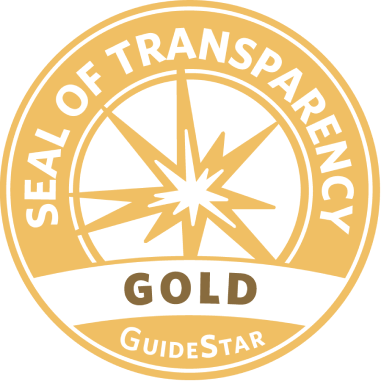Psychological violence, often referred to as emotional or mental abuse, leaves deep and lasting scars that are not as visible as those caused by physical violence. For many women and girls, especially those served by Omid Foundation, the effects of psychological violence are profound and can shape their lives for years, even after the abuse has ended.
This form of violence can take many shapes—manipulation, gaslighting, intimidation, and verbal abuse, to name a few. Despite its often subtle nature, its consequences are significant and long-lasting, affecting survivors’ mental, emotional, and physical well-being. In this article, we explore the nature of psychological violence, its long-term impact, and the paths to recovery that empower survivors to reclaim their lives.
What is Psychological Violence?
Psychological violence is a form of abuse that uses emotional manipulation, fear, or control to dominate or harm another person. Unlike physical abuse, it does not leave visible marks, but its effects are no less damaging. It often occurs in intimate relationships but can also take place in families, workplaces, or communities.
Common forms of psychological violence include:
Gaslighting: Making the victim doubt their own perceptions or sanity.
Name-calling and insults: Using derogatory language to belittle or demean.
Control and manipulation: Isolating the victim from friends and family, controlling their finances, or dictating their actions.
Threats and intimidation: Using fear to exert control, such as threats of harm or abandonment.
Emotional neglect: Withholding affection, support, or validation.
Though these behaviors may not leave physical scars, their impact on the mind and soul is profound, often leading to long-term emotional trauma.
The Long-Term Effects of Psychological Violence
Psychological violence often goes unrecognized or unaddressed, yet its impact is deep and far-reaching. Survivors may carry the consequences for years, affecting their mental health, relationships, and overall quality of life.
- Mental Health Challenges
One of the most significant impacts of psychological violence is on mental health. Survivors often experience:
Anxiety: Constant fear or worry, often rooted in the hyper-vigilance developed during the abuse.
Depression: Feelings of hopelessness, worthlessness, or disinterest in life.
Post-Traumatic Stress Disorder (PTSD): Flashbacks, nightmares, and difficulty trusting others.
Low Self-Esteem: Years of being belittled or invalidated can erode a survivor’s confidence and self-worth.
- Physical Health Consequences
While psychological violence primarily affects the mind, its effects can manifest in the body as well. Survivors are more likely to experience:
Chronic Stress: This can lead to heart disease, high blood pressure, and weakened immunity.
Sleep Disorders: Insomnia or disrupted sleep due to anxiety or hyper-vigilance.
Chronic Pain: Conditions such as migraines or fibromyalgia are more common among survivors.
- Relationship Difficulties
The long-term effects of psychological violence often spill over into survivors’ relationships:
Trust Issues: Survivors may struggle to trust others, fearing manipulation or betrayal.
Attachment Challenges: Difficulty forming healthy attachments, often oscillating between dependency and avoidance.
Communication Barriers: Struggles with expressing emotions or setting boundaries due to fear of conflict.
- Impact on Career and Education
Psychological violence can also disrupt a survivor’s ability to pursue their goals. Abusers often undermine their victims’ confidence or create obstacles to their success. Survivors may face challenges such as:
Self-Doubt: Feeling incapable or unworthy of achieving their ambitions.
Imposter Syndrome: Constantly fearing failure or believing their success is undeserved.
Workplace Anxiety: Struggling to assert themselves or navigate authority dynamics.
How Psychological Violence Affects Women Differently
Women are disproportionately affected by psychological violence due to systemic gender inequalities, cultural norms, and societal expectations. These factors often exacerbate the impact of abuse and create additional barriers to recovery:
- Gender-Based Power Dynamics
In many cultures, women are socialized to prioritize harmony and obedience, making them more vulnerable to manipulation and control. Abusers often exploit these dynamics to exert power.
- Stigma and Isolation
Women who experience psychological violence often face stigma or victim-blaming. They may be accused of overreacting or feel pressured to maintain the appearance of a happy relationship, leading to further isolation.
- Economic Dependence
Financial control is a common tactic in psychological violence. Women who are economically dependent on their abusers face additional challenges in leaving abusive situations and rebuilding their lives.
Breaking the Cycle: Paths to Recovery
Recovering from psychological violence is a complex and deeply personal journey. At Omid Foundation, we focus on creating safe spaces where survivors can heal, regain their confidence, and rebuild their lives. Here are some key components of the recovery process:
- Recognition and Validation
The first step in healing is recognizing the abuse and validating the survivor’s experiences. Many survivors struggle to name their experiences as abuse due to societal minimization of psychological violence. Therapy and support groups can help survivors identify and understand the dynamics of abuse.
- Trauma-Informed Therapy
Professional counseling is essential for addressing the long-term effects of psychological violence. Therapies such as cognitive-behavioral therapy (CBT) or eye movement desensitization and reprocessing (EMDR) can help survivors process their trauma and develop healthier coping mechanisms.
- Building Support Networks
Isolation is a common consequence of psychological violence, but reconnecting with supportive individuals is a vital part of healing. Friends, family, and peer groups can provide the emotional support and encouragement survivors need to move forward.
- Empowerment Programs
At Omid Foundation, we offer programs that empower women to regain their independence and self-worth. Life skills training, vocational programs, and workshops on self-esteem and resilience help participants rebuild their confidence and envision a brighter future.
- Self-Care and Mindfulness
Healing also involves reconnecting with one’s body and emotions. Practices like yoga, meditation, and journaling can help survivors regain a sense of control and self-awareness.
The Role of Communities in Supporting Survivors
While individual efforts are essential, communities also play a crucial role in addressing psychological violence and supporting survivors:
Raising Awareness: Educating the public about psychological violence can reduce stigma and encourage survivors to seek help.
Advocating for Change: Pushing for laws and policies that recognize psychological violence as a form of abuse and ensure access to support services.
Creating Safe Spaces: Establishing shelters, support groups, and organizations like Omid Foundation that provide holistic care for survivors.
Real Stories: Transformations at Omid Foundation
Farzaneh’s Journey
Farzaneh came to Omid Foundation after years of enduring psychological abuse in her marriage. Initially hesitant to speak out, she found solace in our support groups, where she connected with women who shared similar experiences. With the guidance of our counselors, Farzaneh began to rebuild her confidence, pursue her education, and eventually start her own small business.
The Power of Peer Support
In our programs, survivors often find strength in each other’s stories. By sharing their journeys, they not only heal but inspire others to take the first steps toward recovery.
Conclusion
Psychological violence may not leave visible scars, but its effects are deeply felt and long-lasting. By raising awareness, providing compassionate support, and empowering survivors, we can help them break free from the cycle of abuse and reclaim their lives.
At Omid Foundation, we are committed to creating a world where women are no longer defined by their trauma but empowered to thrive. Together, we can ensure that no survivor faces their journey alone.
For more information about our programs or to support our mission, visit Omid Foundation’s website.

